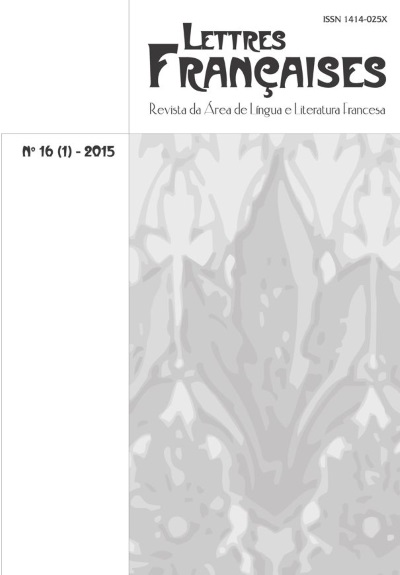The cursed and eternal feminine and the modern sensibility: the motif of femme fatale between Baudelaire and the Brazilian decadentism
Keywords:
Decadentism, Erotic poetry, Sublime, Grotesque, Poetry of romantic orientation,Abstract
The aim of this paper is to make considerations on the development of erotic images in decadent Brazilian poetry taking into consideration the motif of Baudelaire´s femme fatale. The distant, lethargic and indifferent beloved woman of the romantic tradition unfolds, in decadent ambient, through disturbing figurations that evoke the idea of prohibited eroticisms: prostitutes, corpses, monsters provide, in this context, the imagetic substrate for the composition of the desired woman. It manifests metonymically, in a diction that amalgamates the attraction to repulsion, as an erotic materialization of the ideal. Baudelaire with poems like “Le Poison” and “Le Léthé” is the immediate reference to this complex imagetic that gives to the erotic contact with the “cursed woman” the contours of a transcendent experience in which epiphanies come about in emptiness and give to the idealistic poetry the uncertainties of modernity. The Brazilian poetry reaction to Romanticism, produced between 1870 and 1880 under the influence of Baudelaire, will make use of an erotic imagetic, synthesis of the grotesque and the sublime, to which our symbolism is very sensitive, finding manifestations in the convulsive eroticism of Cruz e Sousa´s Broquéis, in which the idealistic crisis becomes erotic desire and associates the ideas of impossibility and nullity to a new conception of an agonizing and visceral ideal.Downloads
Published
29/02/2016
Issue
Section
Artigos
License
Os manuscritos aceitos e publicados são de propriedade da Revista Lettres Françaises. É vedada a submissão integral ou parcial do manuscrito a qualquer outro periódico. A responsabilidade do conteúdo dos artigos é exclusiva dos autores. É vedada a tradução para outro idioma sem a autorização escrita do Editor ouvida a Comissão Editorial.

